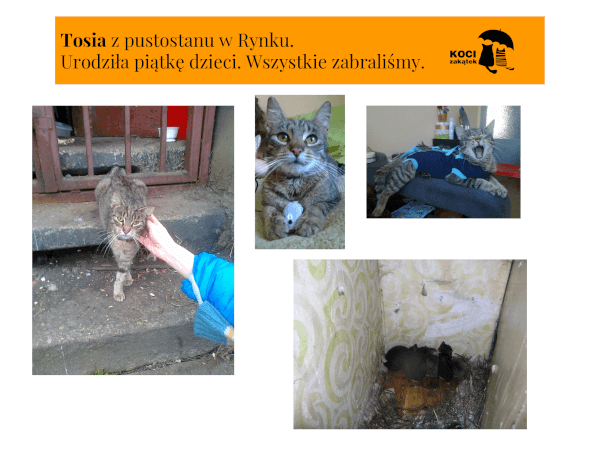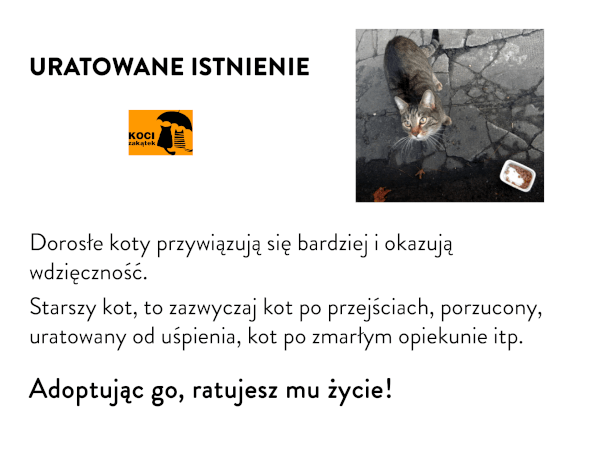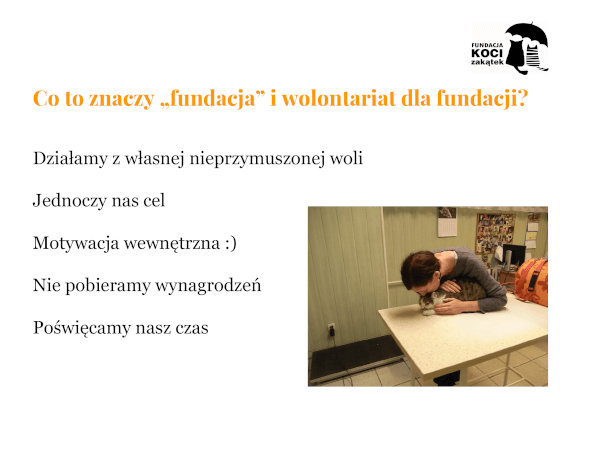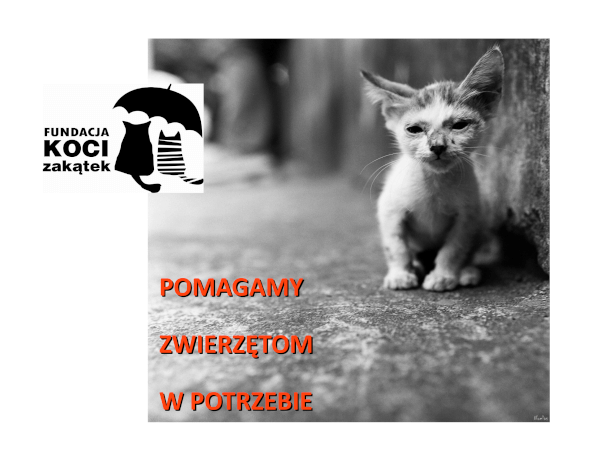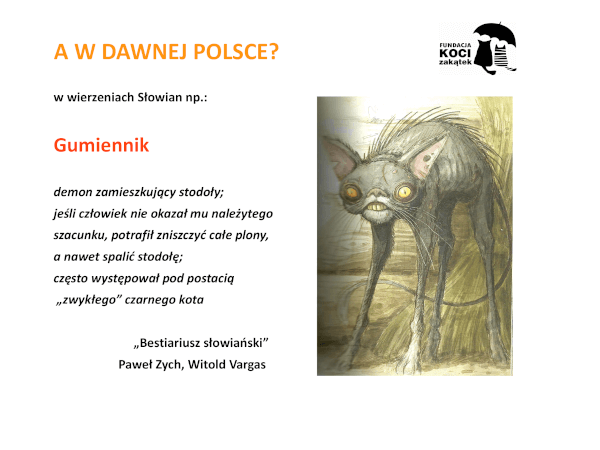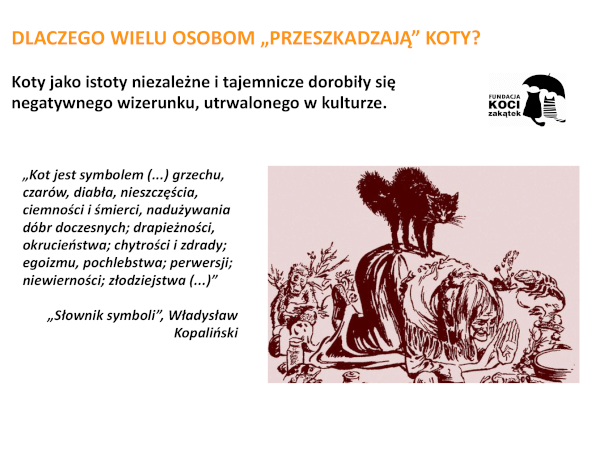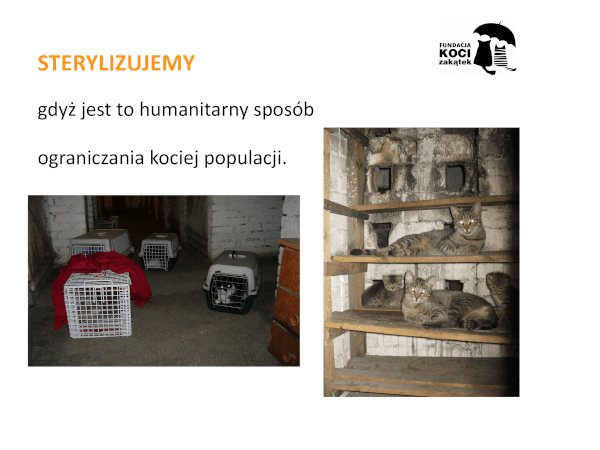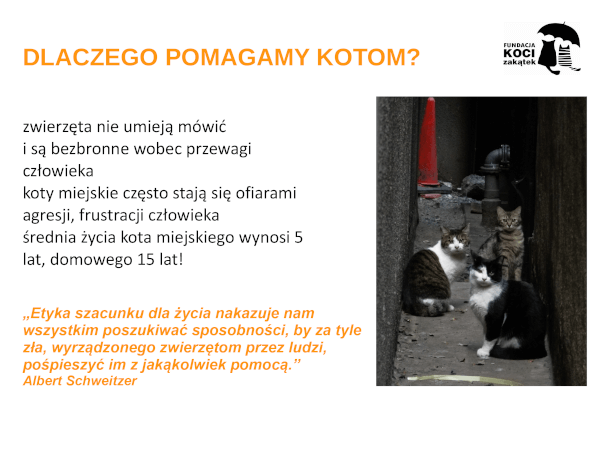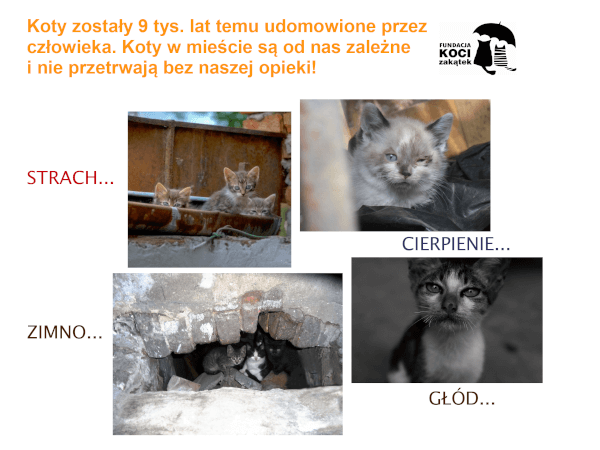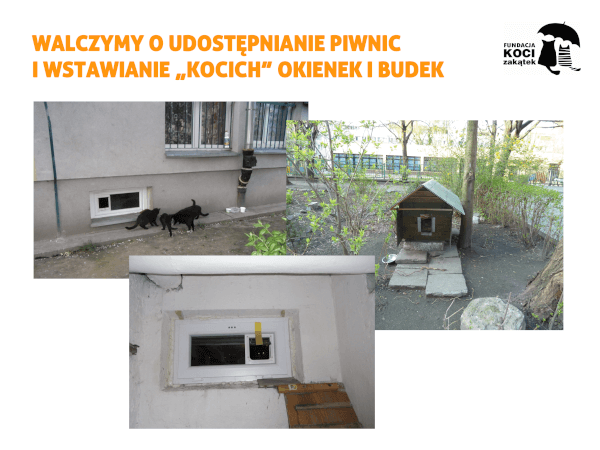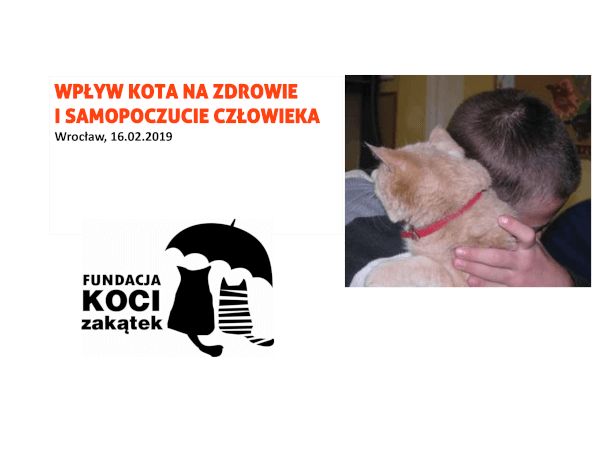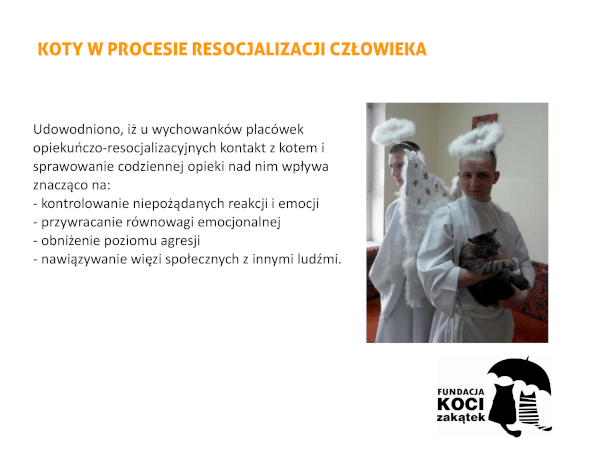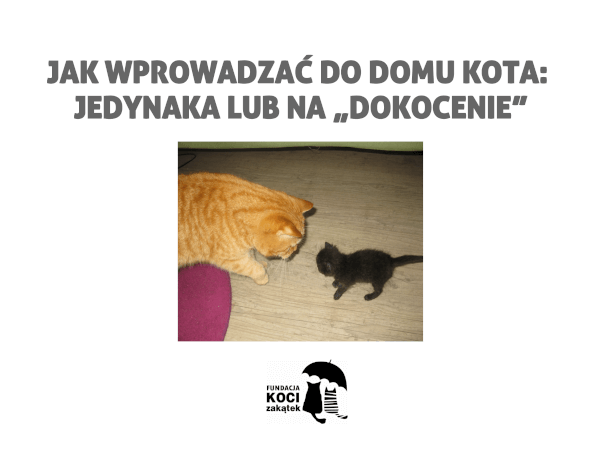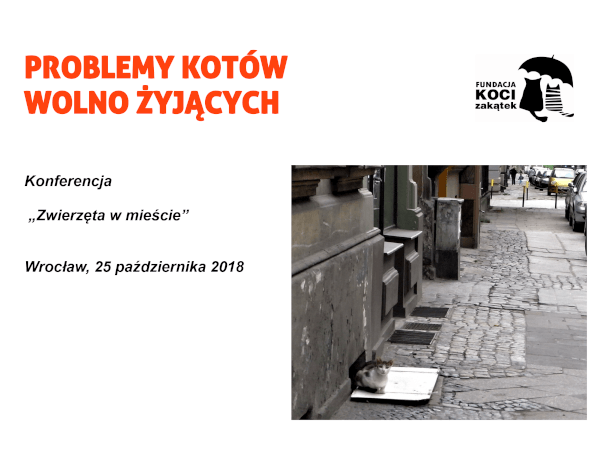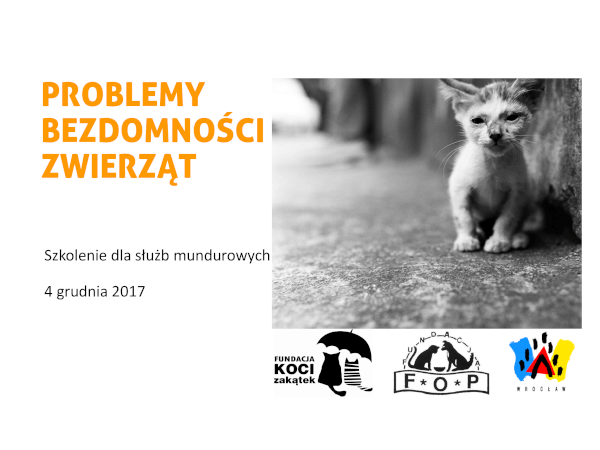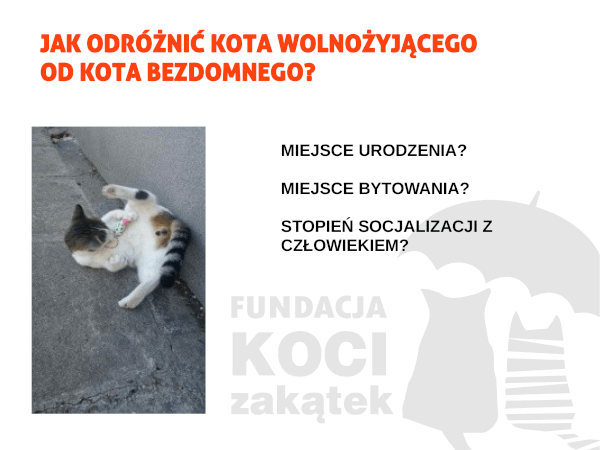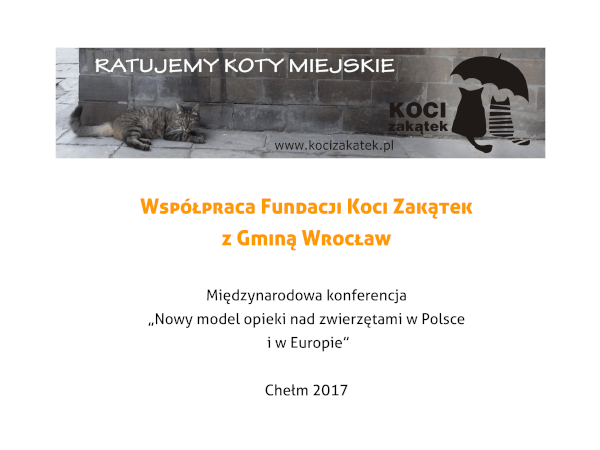About Koci Zakatek
A cat doesn’t feel cold, because he has fur. He hunts for food so he does not need to be fed. This cat eats, so he is healthy. A cat will take care of himself. Every cat is very happy living in outer space.
Really? Imagine you live home in the morning and all you feel is fear. You need to go, to manage your businesses, but you are afraid to move, aware of the danger surrounding you. So you decide to move on, as quiet as you can, on your tiptoes, looking around to avoid the attack. Finally it is getting dark, the streets are getting empty and this is the only time when you can breathe freely.
People, cars, poisoned rodents, buildings being pulled down. Life of a stray animal, especially in a big town, is like everyday struggle for life. Even the lucky ones, who have a regular career and food don’t live long. Basically all of them are sick with something - you see the symptoms or their tests results only when you take them in.
Feral and homeless cats will not make it without human support. That is why our Cats Shelter was founded.

People
-
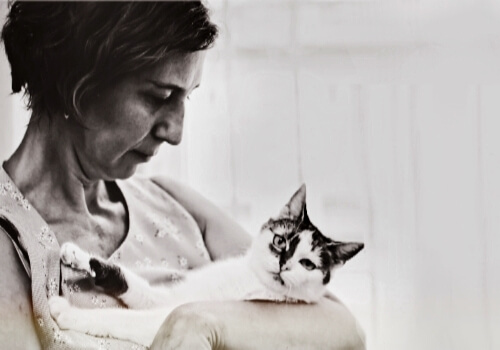
Edyta
My adventure with homeless cats began in 2009 when I picked up a sick kitten from a street. He was walking blindly between cars, with eyes sealed with pus; then a cat family appeared, living on the bank of the Oder River in appalling conditions. I could not stop thinking about these poor creatures, dirty, hungry and many sick, living in constant fear of dogs and people. I reached out to people already helping abandoned and free roaming cats, including Iwona, successfully finding them all permanent homes, whilst the senior of the pack came to live with me and became my beloved friend. I caught the "cat bug" and this is how it continues to this day.
-
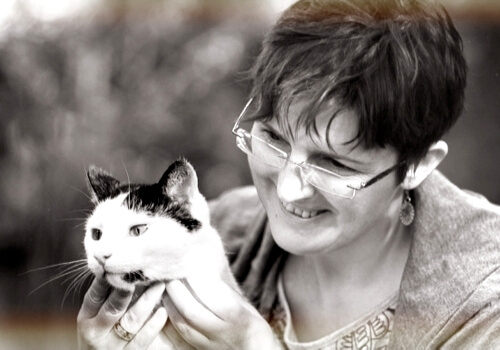
Iwona
14 years ago, in the winter, I found an injured kitten in the parking lot and this is where my "feline addiction" began. The kitty survived and became a beloved family member. With time a few more homeless felines with a traumatic history shared my abode. I became interested in the fate of free-roaming cats in our city. I began to take care of feeding, treating, organising neutering and adoption of these beautiful animals. Together with Edyta, we started working in the foundation, because - despite many additional duties, it offered many more opportunities to help. We started with taking care of a few cats, but with time and with the help of many wonderful people, our activity has grown to encompass caring for about 200 cats a year.
-
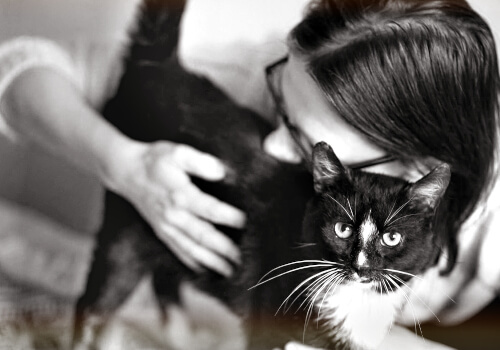
Kasia
I found out about the foundation in ..., when Iwona and Edyta conducted a large intervention and adoption campaign in one of the hospitals in Wrocław. It was soon after a loss of one of my beloved cats, so I thought that by adopting I would help to save at least one cat's life. At first, completely distrustful, the new arrival began to make progress, gradually initiating contact and developing trust, whilst I realised how wonderful and fascinating it is to accompany a rescue cat on this journey of transformation. Then I met a cat mother with two generations of kittens and decided to help them. The foundation helped to find loving homes for everyone! Each adoption home is one precious life saved, so I am involved with it to this day.

Edyta
My adventure with homeless cats began in 2009 when I picked up a sick kitten from a street. He was walking blindly between cars, with eyes sealed with pus; then a cat family appeared, living on the bank of the Oder River in appalling conditions. I could not stop thinking about these poor creatures, dirty, hungry and many sick, living in constant fear of dogs and people. I reached out to people already helping abandoned and free roaming cats, including Iwona, successfully finding them all permanent homes, whilst the senior of the pack came to live with me and became my beloved friend. I caught the "cat bug" and this is how it continues to this day.

Iwona
14 years ago, in the winter, I found an injured kitten in the parking lot and this is where my "feline addiction" began. The kitty survived and became a beloved family member. With time a few more homeless felines with a traumatic history shared my abode. I became interested in the fate of free-roaming cats in our city. I began to take care of feeding, treating, organising neutering and adoption of these beautiful animals. Together with Edyta, we started working in the foundation, because - despite many additional duties, it offered many more opportunities to help. We started with taking care of a few cats, but with time and with the help of many wonderful people, our activity has grown to encompass caring for about 200 cats a year.

Kasia
I found out about the foundation in ..., when Iwona and Edyta conducted a large intervention and adoption campaign in one of the hospitals in Wrocław. It was soon after a loss of one of my beloved cats, so I thought that by adopting I would help to save at least one cat's life. At first, completely distrustful, the new arrival began to make progress, gradually initiating contact and developing trust, whilst I realised how wonderful and fascinating it is to accompany a rescue cat on this journey of transformation. Then I met a cat mother with two generations of kittens and decided to help them. The foundation helped to find loving homes for everyone! Each adoption home is one precious life saved, so I am involved with it to this day.
...and wonderful volunteers
Kitten's Corner could not function without others: wonderful people, volunteers who commit to visit and attend to our shelter cats every day needs from cleaning litter boxes, feeding, playing to administering medications and facilitating veterinary visits and required treatments. Thank you very much to all of them. :)
Why are we needed?
There are about 40 000 feral cats in the Wrocław area (according to the Wrocław Animal Shelter). Despite the huge effort of the NGOs and individual cat carers to castrate as much as we can, there are still too many of them on the streets.
We are also very concerned with a growing number of domesticated cats, who become homeless and join feral cats, living in town. This is due to the recklessness, lack of proper care and sometimes cruelty of individual animal carers. We are here to rescue at least some of them.
Our statutory goal is to rescue sick, abandoned and hurt animals.
Our Statutory Act (PL)Our vision
It is a man who tamed cats long ago, to work for him or to provide entertainment. Modern cats, the so-called feral cats, are their descendants, doomed to their fate. People continue to have great impact on their natural environment, and subsequently bear responsibility for their living conditions, owing them protection and respect.

Our mission
-
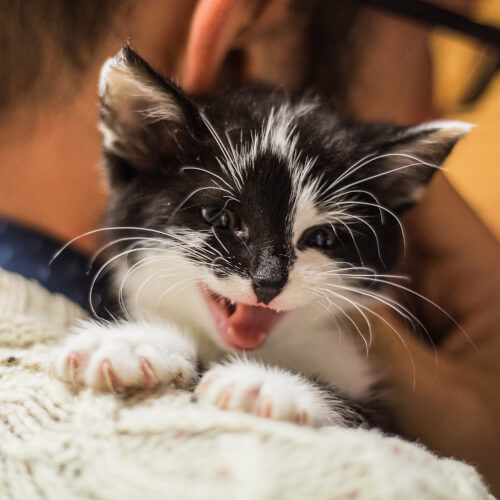
Providing comprehensive assistance
catching, taking into care, providing medical treatment, releasing back or finding home.
-
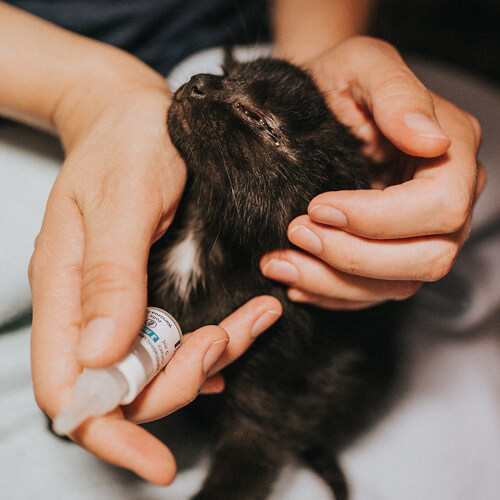
Offering professional veterinary care
to feral and homeless cats on the best possible level.
-
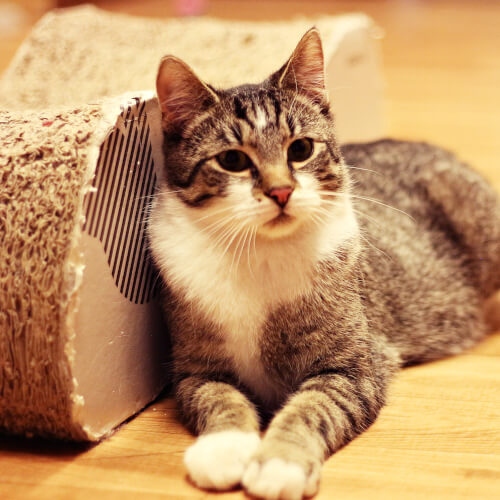
Providing longer and safe life to the cats
by placing them in the hands of responsible people, Educating cat’s owners and carers of feral cats.
Our values
-
01
Every animal has the right to a life free from pain and fear.
-
02
We can't save everyone, but every life saved counts.
-
03
The attitude towards animals is a measure of our humanity.
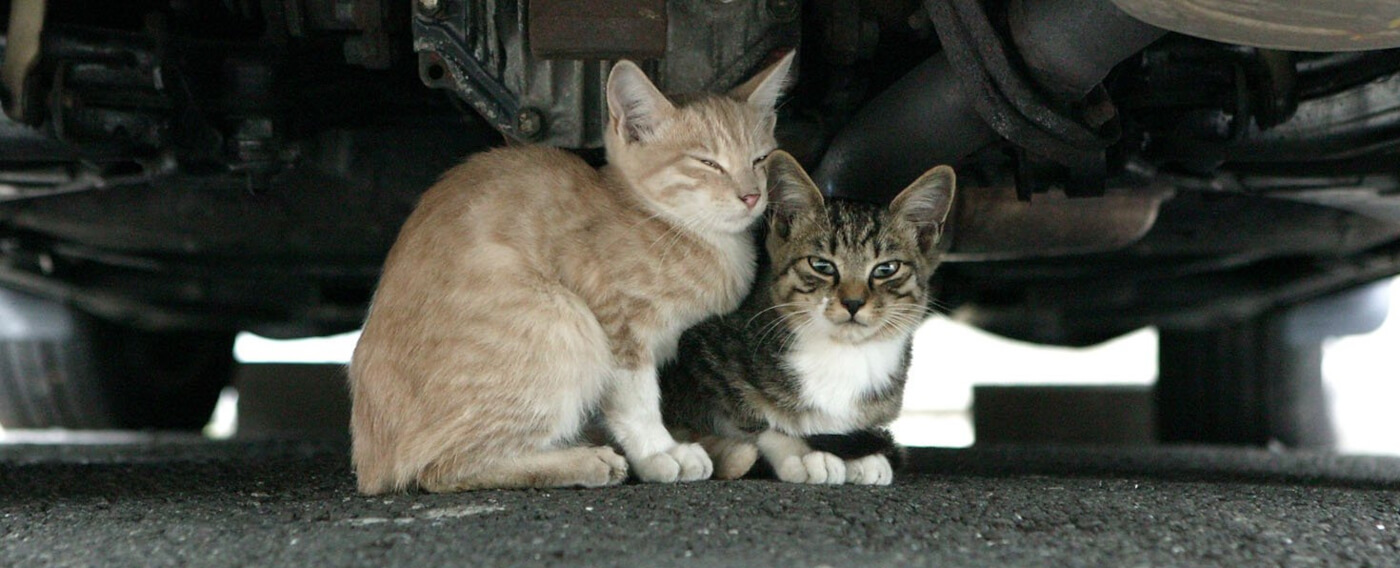
What we do
Controlling local cat population
on the TNR basis (trap–neuter-release)
Most of the cats under our care come from the places that we monitor on the regular basis.
We also take or trap other cats, when we are asked for help by local cat carers or other individuals. Unfortunately we cannot provide places and medical treatment to all the cats that we are told of. But we always try to participate in other ways, like helping to trap a cat, lending our traps or kennels.
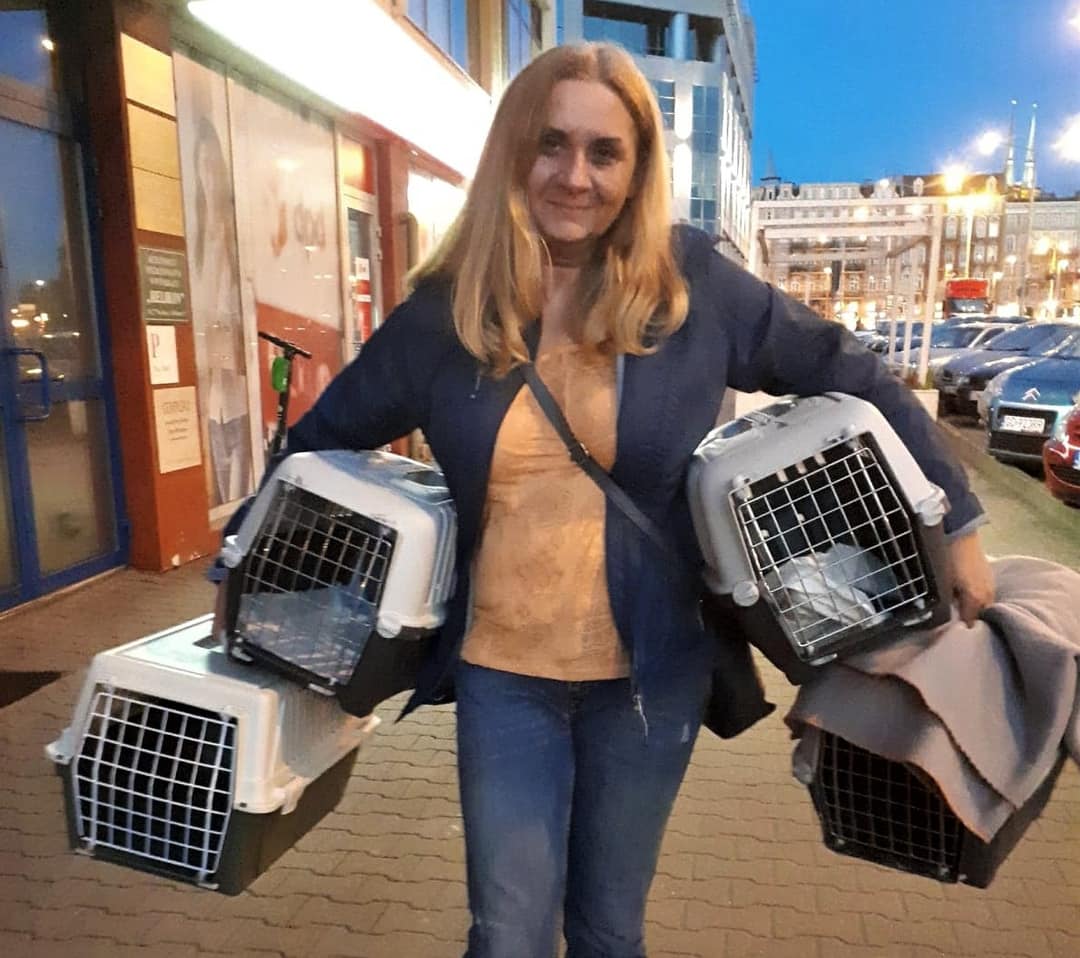
-

Catching cats
We do it with cat-traps and other equipment, but always minding cats' well-being and health.
-

Organising neuter surgeries
We use neuter coupons, financed by the local municipality, and also finance some of them in other clinics. We provide transport and accessories.
-

Taking care after the surgery
We provide some places for cats for their convalescence and every day care (feeding, cleaning etc.).
-

Release or find a home
We bring them back to their environment or find homes. We search for homes for domesticated cats and kittens. We release those who have carers and food and shelter.
Providing medical care
for all our cats
Feral cats suffer from different kinds of disease, like:
- respiratory tract infections (herpesvirosis, bronchitis/pneumonia),
- infectious and auto-immune diseases (calicivirosis, FELV, FIP, FIV),
- chronic ailments and diseases (renal failure, FUS),
- eye or ear infections,
- skin diseases,
- tumors,
- fractures,
- allergies.
Every cat that comes to our care is undergoing appriopruate examination and treatment. All adult cat undergo sterilisation surgery.
We treat our cats with the best specialists in Wrocław. We fight for every life that has a chance. We have already witnessed many miracles.
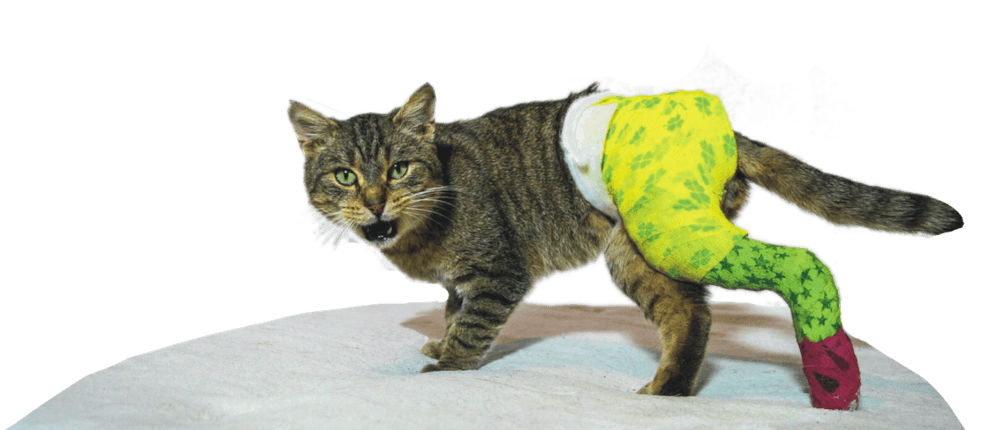
Finding forever homes
we will assist you in choosing the right cat for you and advise on the necessary equipment and diet
-

Adoption is a process
We are asking to fill in our adoption questionnaire and for a pre-adoption meeting.
-

We are helping you to get ready for a cat
We will discuss with you cat’s needs, behaviour, healthy diet, possible safety measures etc.
-

We are supportive after adoption
We may come to see how the cat is doing and advise or take actions in case of behavioral issues.
Education
through educational messages on social media and also via outdoor campaigns
There is still a lot to be done in terms of Poles' attitudes towards cats.
People who declare a verbal dislike of cats or commit acts of aggression towards them are most often people who have never had a cat at home!
It is such negative stereotypes that harm free-roaming cats.
That's why:
- we fight superstitions,
- we show the benefits,
- we promote models of responsible animal care,
- we engage the local communities to support and live in cohesion with their environment.
Educational Campaign in cooperation with MPK Wroclaw
In February 2022, passengers of MPK Wrocław had a chance to see an educational campaign prepared by our foundation on monitors in trams and buses. It was about ways you can help the cats in the city.
Because the city is not a friendly place for a cat.

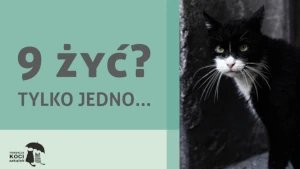
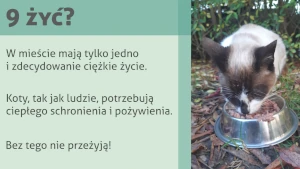
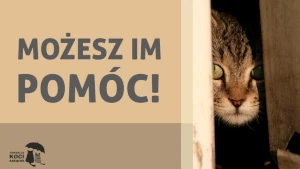
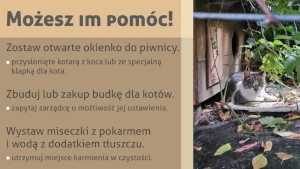
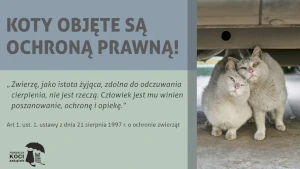
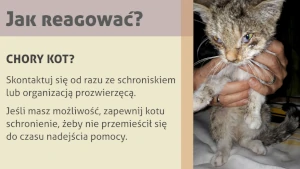
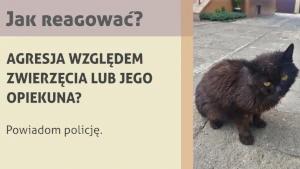
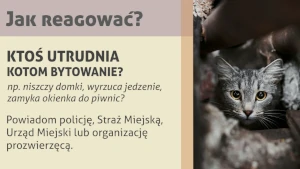
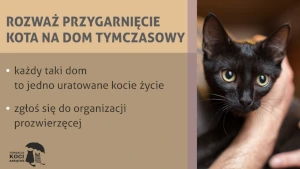
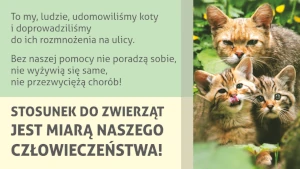
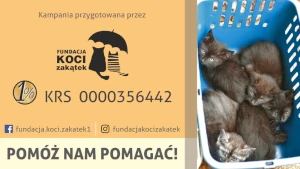
Other educational campaigns we conducted in Wroclaw:
- “You don’t have to like them, just tolerate them”
- “Truths and lies about cats”
- “Stop to abandoning cats”
- “Cats don’t fly”
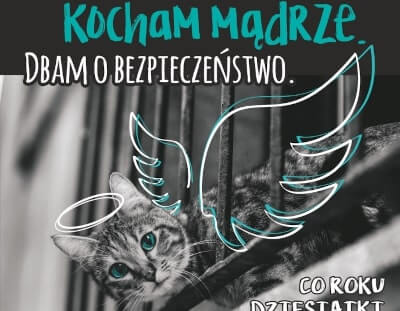
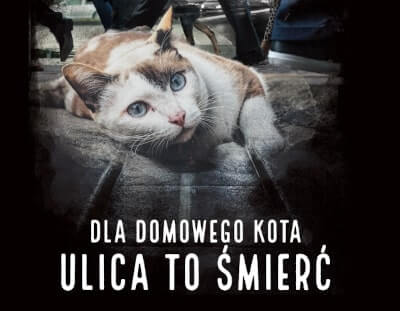
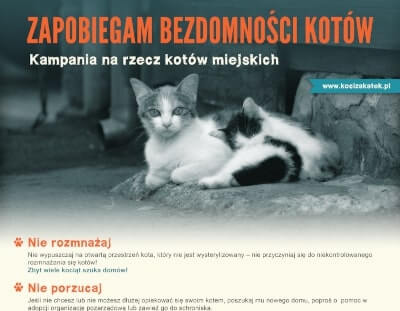
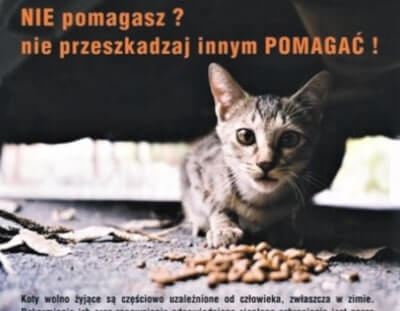
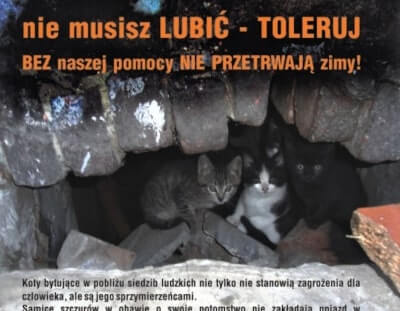
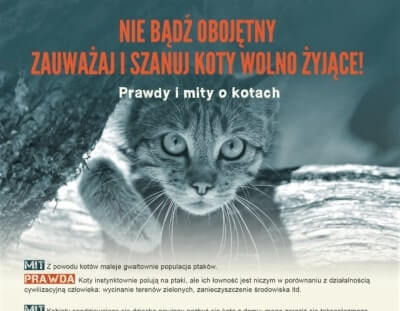
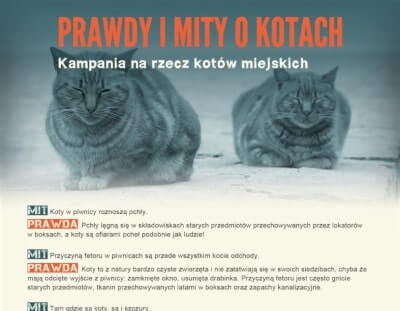
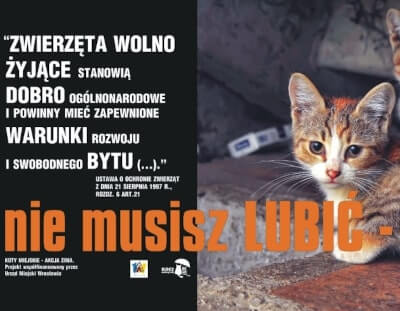
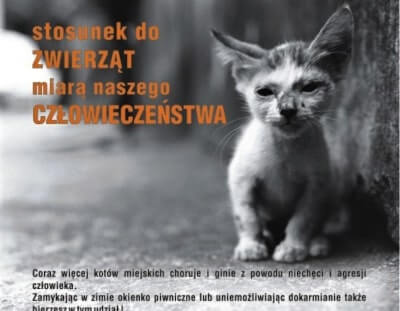
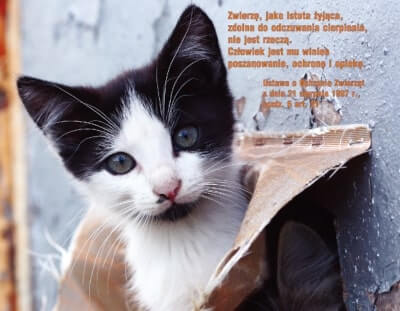
Our cattery
Some of the stray cats need to be taken urgently from the street.
We take them to our cattery, where they undergo a quarantine and receive medical treatment. If they don’t go to a foster care or adoption in the meantime, they receive a vaccination and join other cats in a specially equipped and catified room.
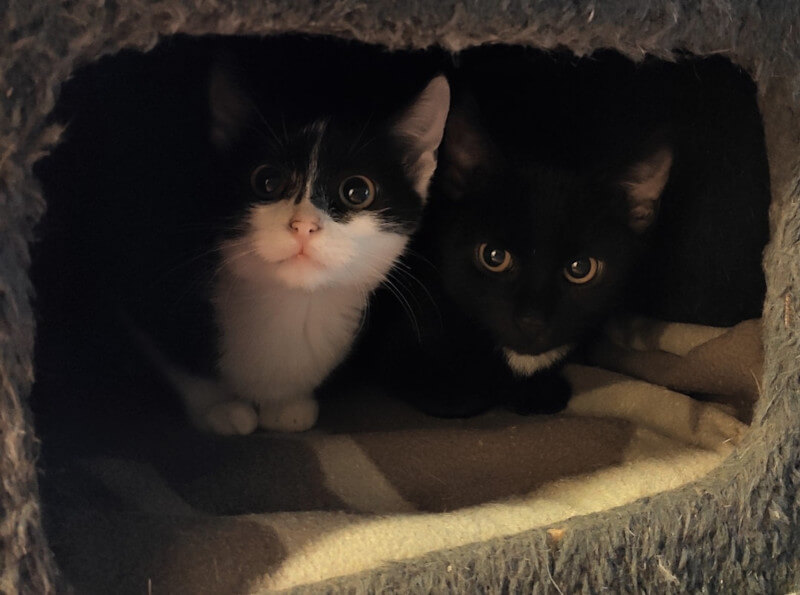
We aim to the highest standards:
-
01
hygiene We have everyday cleaning routines and keep litter boxes clean and tidy.
-
02
health protection We use UV lamps and air ozonator.
-
03
cat pheromones We support stressed and traumatised cats with pheromone collars.
-
04
equipment Cats are provided with scratch points, toys, cat furniture and under- ceiling playgrounds.
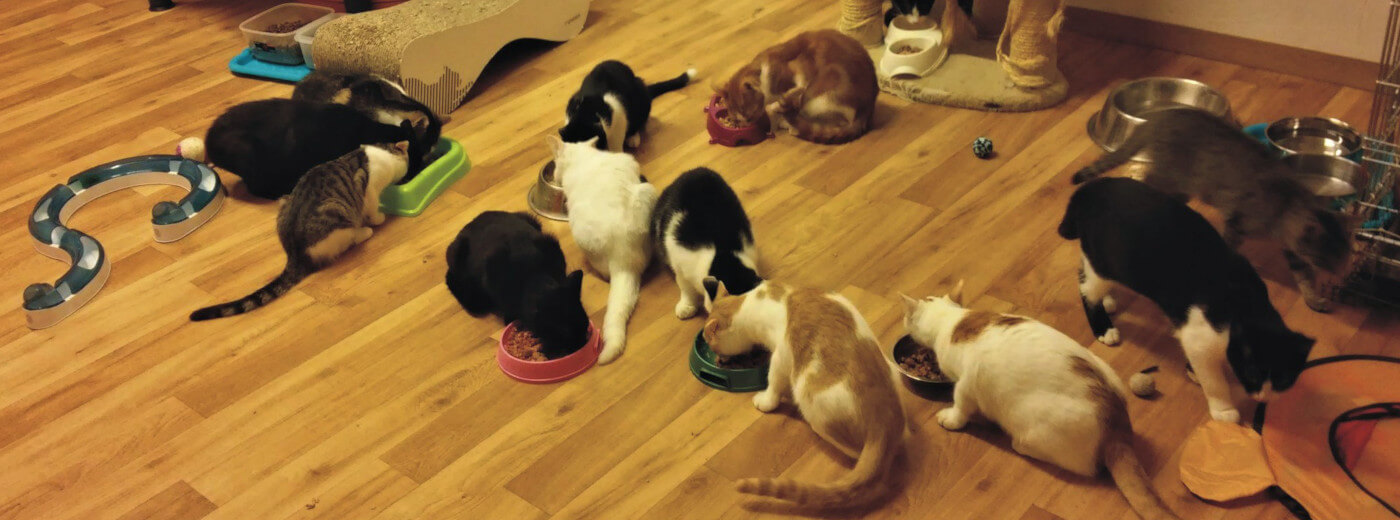
Freshly arrived cats receive a dose of synthetic or natural serum.
This is our own procedure to avoid the epidemic of a very deadly illness of panleukopenia, which takes many cat’s lives every year - while living outdoors and also in many shelters.
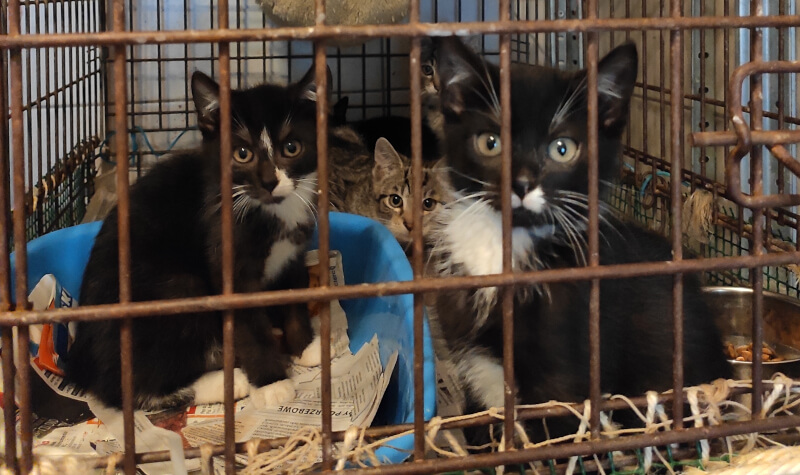
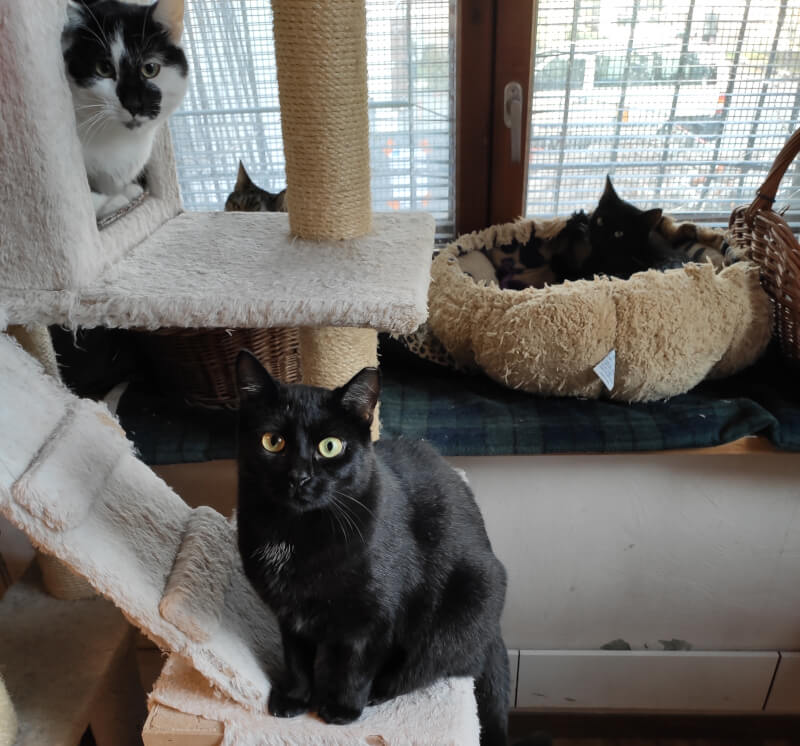
Our cats in the cattery are looked after by a group of volunteers who:
- clean,
- feed,
- prompt medications,
- stroke, play and hug.
Our volunteers are superheroes - but always in a hurry. You can support us and become one of them!
Join our team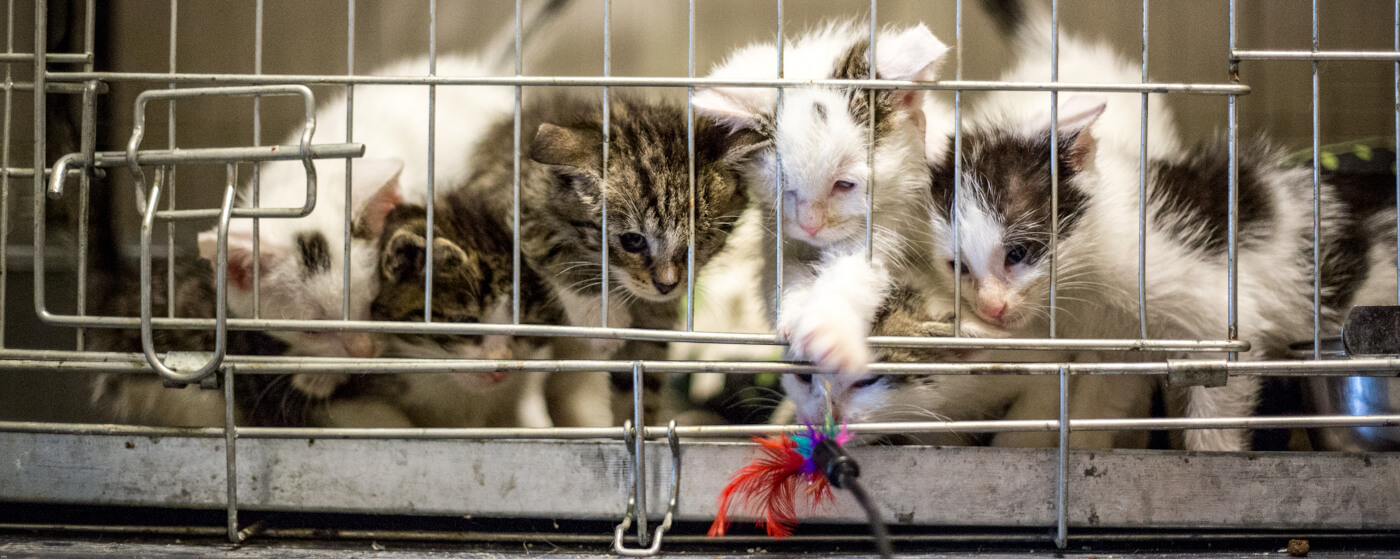
Watchdog Activities
Since our inception, we have been reviewing solutions and practises utilised in Wroclaw regarding free-roaming cats.
-
2011
In 2011, we started a dialogue with the Wrocław City Hall and the Wrocław City Council to increase awareness amongst local authorities of the scale of the problem, suggesting improvement of existing solutions related to free-roaming cats and their local care takers, and the need for open dialog and consultation with local pro-animal groups. We conversed with various departments and people who were (and are currently) involved in this area; we submitted letters and proposals outlining changes regarding the neutering of feral cats, means of support for local animal welfare and volunteer organisations, the need for provision of financial resources for medical treatments and procedures.
-
2014
When in 2014 the statutory obligation for municipalities to create programs for the care of homeless animals and the prevention of animal homelessness became obligatory, we consulted the project and suggested several provisions that are repeated in annual Wrocław programs to this day. Thanks to our efforts, among others, the rules of offering medical treatment to free-roaming cats by Wroclaw animal shelter have been refined and the shelter's emergency aid in capturing feral cats has been introduced.
-
2015
In 2015, we approached Wrocław authorities with a proposal to develop an appeal to property managers and city residents, supporting the habitation sanctuaries and feeding of free-roaming cats, especially in winter. Thanks to meetings with counsellors and representatives of the City Hall, it was possible to introduce an appeal in favour of offering homeless cats the right to/access to shelter and sustenance. The Appeal became official and has now been adopted as accepted practice by the Wrocław City Hall.
-
2017
In 2017, as part of the Social Dialogue Group education initiative in cooperation with another Wrocław organization - FOP - we conducted training for uniformed services nature of free-roaming cats and the challenges faced by animal welfare organisations and local cat support groups.
-
2016-2020
We actively participated in meetings conducted during the Social Dialogue Group operation for urban animal welfare, sharing our experience, suggesting directions for required changesin the practises of the municipal departments, reviewing and offering opinions on the submitted proposals.
-
2021-now
The president of our foundation joined an Animal Council, created to act as an advisor to the President of Wrocław.

